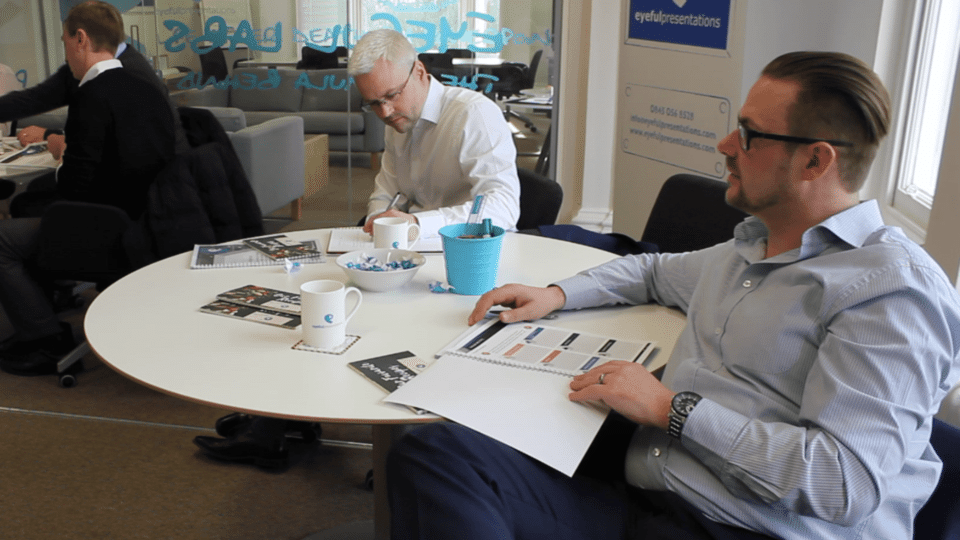Everyone thinks of changing the world, but no one thinks of changing himself
There are legions of zombies presenting at business events and meetings across the world right now. These zombies tend to be pretty benign, but chances are that at some point this week, your schedule will be mangled, and valuable time wasted listening to one of their ilk drone on…and on…and on.
In my experience, these zombies or ‘UNCONSCIOUSLY INCOMPETENT’ presenters come in one of two forms:
Zombie 1 – Those That Were Never Trained To Present Properly In The First Place
This sad state of affairs might be because they’ve either got away with it due to their confidence, charisma and general bluster. Either that or because they reached a point within an organisation where it didn’t feel like it was the right thing to do to criticise, offer coaching, or highlight the fact that maybe they just weren’t a particularly good presenter. Telling your boss they’re not much cop is never going to be an easy conversation.
As a result, there are a growing number of CEOs that have been called out by the press and shareholders as being poor at communicating. Chances are these are living examples of Unconsciously Incompetent presenters rising to the top of the tree and becoming untouchable.
I recall being asked to attend a client conference a few years ago. We’d been asked to review the CEO’s performance and offer some pointers and ongoing coaching. The CEO took to the stage and slowly but surely demonstrated a long list of ills that were definitely impacting their ability to engage and communicate with the audience. After the presentation, we sat down with the CEO and asked him how they thought it had gone and his response will always stay with me:
“I was fine…shame about the audience, though”
Zombie 2 – Those That Were Good But Either Got Lazy Or Fell Behind The Times
Keeping your presentation skills honed is an ongoing exercise because things change, requiring you to consistently re-evaluate your style and skills to ensure that you’re truly delivering to the high standard expected by audiences today.
Technique change. The ability to engage an audience through simple things like live voting using mobile technology and opening up the floor to questions to make it more conversational, are all skills that won’t necessarily be part of the one day presentation skills course you attended back in 1995. This set of evolving techniques need to be consistently coached and experienced.
Audiences change. Audiences have changed dramatically over the last 10 years (just look around your office if proof is needed). Their use of technology, short attention spans, higher expectations and the power of social media all have had an impact on the way presenters engage with an audience today.
Technologies change. We’re not talking merely about how to handle a clicker, but rather how to utilise technology to truly engage and immerse your audience in your message. Of course, if you’re unable to explain or communicate that message clearly in the first place, technology won’t help you, but in the right hands, it can have a huge impact.
So, how can you ensure you’re not falling into the ‘Unconsciously Incompetent’ category?
1. At a minimum, we’d recommend conducting a basic Health Check. Record your next presentation and review the video impartially. What are you doing well? What could you do better? Remember, it’s not about looking at what you do with your hands or how you pace around the stage. Instead, I’d implore you to look at the audience. What’s the impact your engagement is having on them?
2. Schedule a ‘Fresh Start Rehearsal’. Invite colleagues in and rehearse for your next presentation, no holds barred. Allow them to offer real, candid advice in terms of their feedback in what you should and shouldn’t be doing. Things that have frustrated them for years may come out. Take it on the chin, deal with it and recognise that this criticism is there to support you and make you a better presenter going forward.
3. Work with a company that focuses and spends their time on doing this day in, day out. Presenting is too important to do half-cocked – if it’s worth doing at all, it’s worth doing properly.
Whatever approach you take, your message, content and business deserve as a minimum, a consciously competent presenter. Your audience, on the other hand, deserve the best presenter you can possibly be.
It’s time to step up and make the change.




